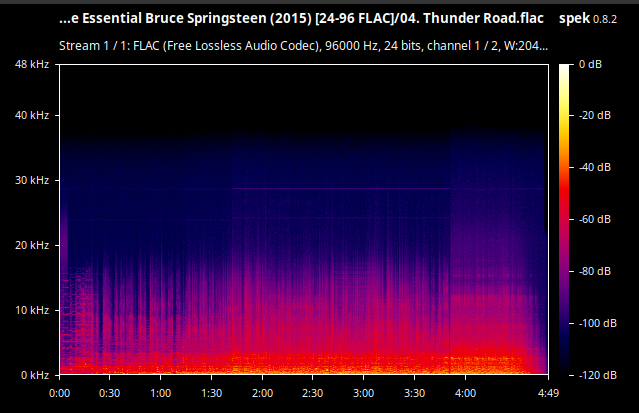In general, I agree with @UltimateRiff as it relates to checking your files for quality. As @slipmaxim mentioned, I have also seen a lot of upsampled files. This is (or was) very common on MP3s that were passed around all over the internet. While that is not a big deal, it is for sure when you are paying for the files. I hope this is not moving away from the thread’s intent, but maybe I can help further answer your question.
Here is an example of a MP3 file with a soft filter applied, the MP3 limiter is sort of a 16kHz preset value, so notice the soft cuttoff at approx 16k, although not a hard cut.
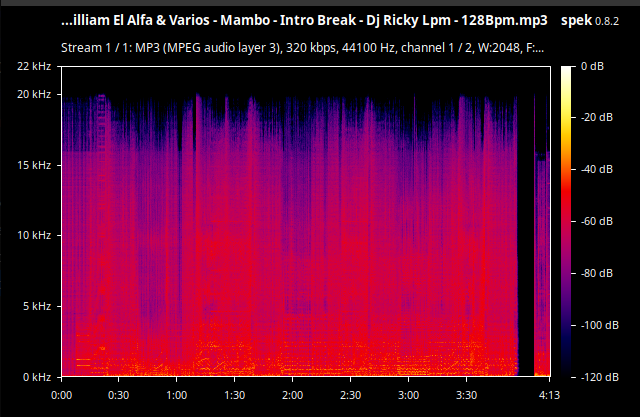
This image shows a file with a hard lowpass filter applied, see that anything over 16k is simply chopped off.
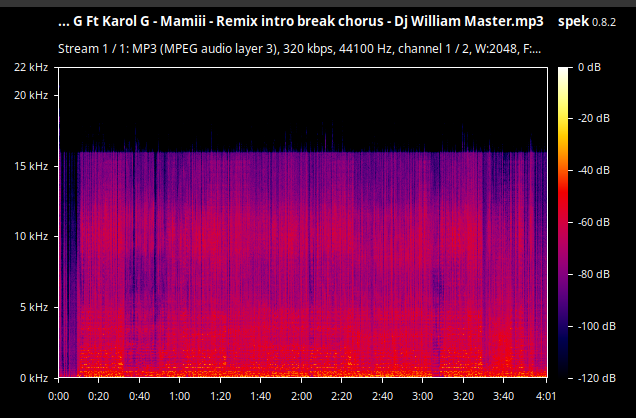
Then this is a file without a lowpass filter applied, keeping the spectrum that is considered full for a standard 16bit file.
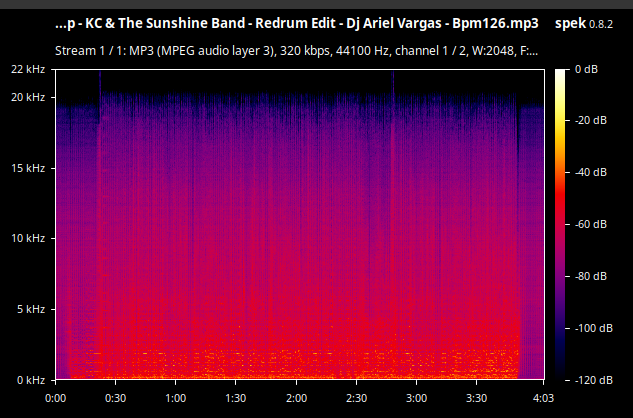
In the above, the frequency still dies at 20k, but there are many 16bit audio files that do not exceed 20k. Here is a file that utilized the full range of the 44.1kHz of the file. It is an M4A iTunes file, but I wanted to show that even in compressed audio files, it is still possible to get good results.
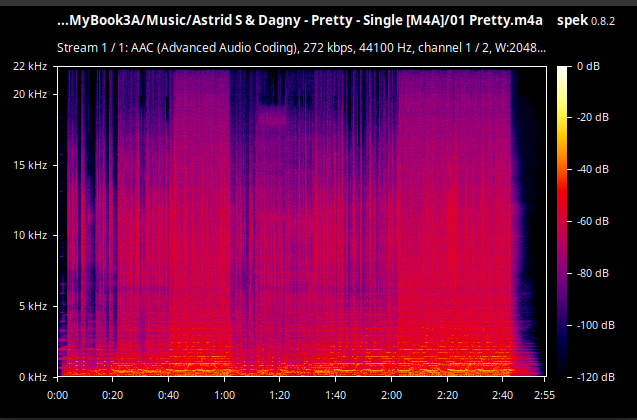
Lastly, here is a FLAC file 16 bit at 96kHz, notice a large amount of headroom that really serves no purpose to end listeners.
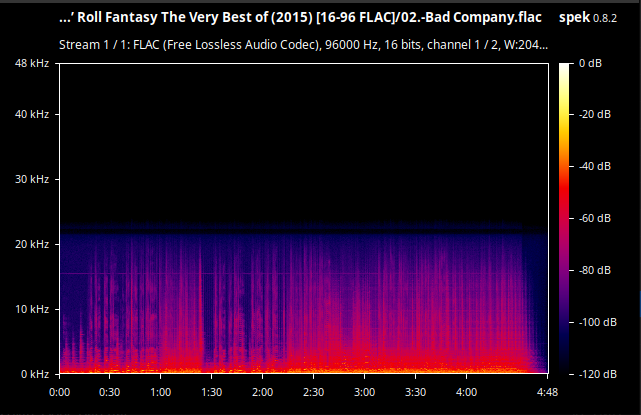
Looking at the above, you can see how different files differ in what they contain. The MP3 files that are 320kbps quality with a cutoff at 16k is nothing more than an upsampled MP3… there is no need to utilize a full 320kbps MP3 when only say a 192kbps is needed to store the truncated data… I am speaking generally.
I do not have a studio of sorts, I only do things at a DJ level, things like mixes, mashups, etc, things where some headroom is needed to maintain quality. For this, I find that 16 bit at 48kHz is perfect. Anything over 48kHz I find to be just waste as the benefits it offers do not get used by me, so paying to store the larger files provides no payoff.
I prefer, almost require, that any compressed audio files that I actually keep do not have a lowpass filter applied, soft or hard. The human ear is stated to hear 20-20k, although realistically (and as seen with MP3s), anything above 16kHz listened to casually is not likely to be noticed. I find that listening relaxing with headphones or in my stereo room with all else quiet, I can tell a difference easily. Depending on your style of music, there are many things you can tell, like the inherent tonal difference between an MP3 vs a M4A. I am not so sure that I can actually hear the frequencies up to the 22kHz ranges, it is possible I only hear the resulting artifacts.
Sorry for the long post, this is not a mastering or sound engineering thread, but I wanted to address your very valid question with some detail.
EDIT: I wanted to add as I do not want to assume… the values like 44.1, 48, 92 kHz is the sample rate. So when it is said that something is upsampled, that basically means that a file originating from a low sample rate file has been converted to a higher sample rate file, doing nothing but adding wasted space. So if you have a 44.1 file and convert it to a 48 or larger, that is only wasted space with no gains. Also if you have a 192 MP3 and you convert it to a 320 MP3, there is no gain there, it just takes up more space.







